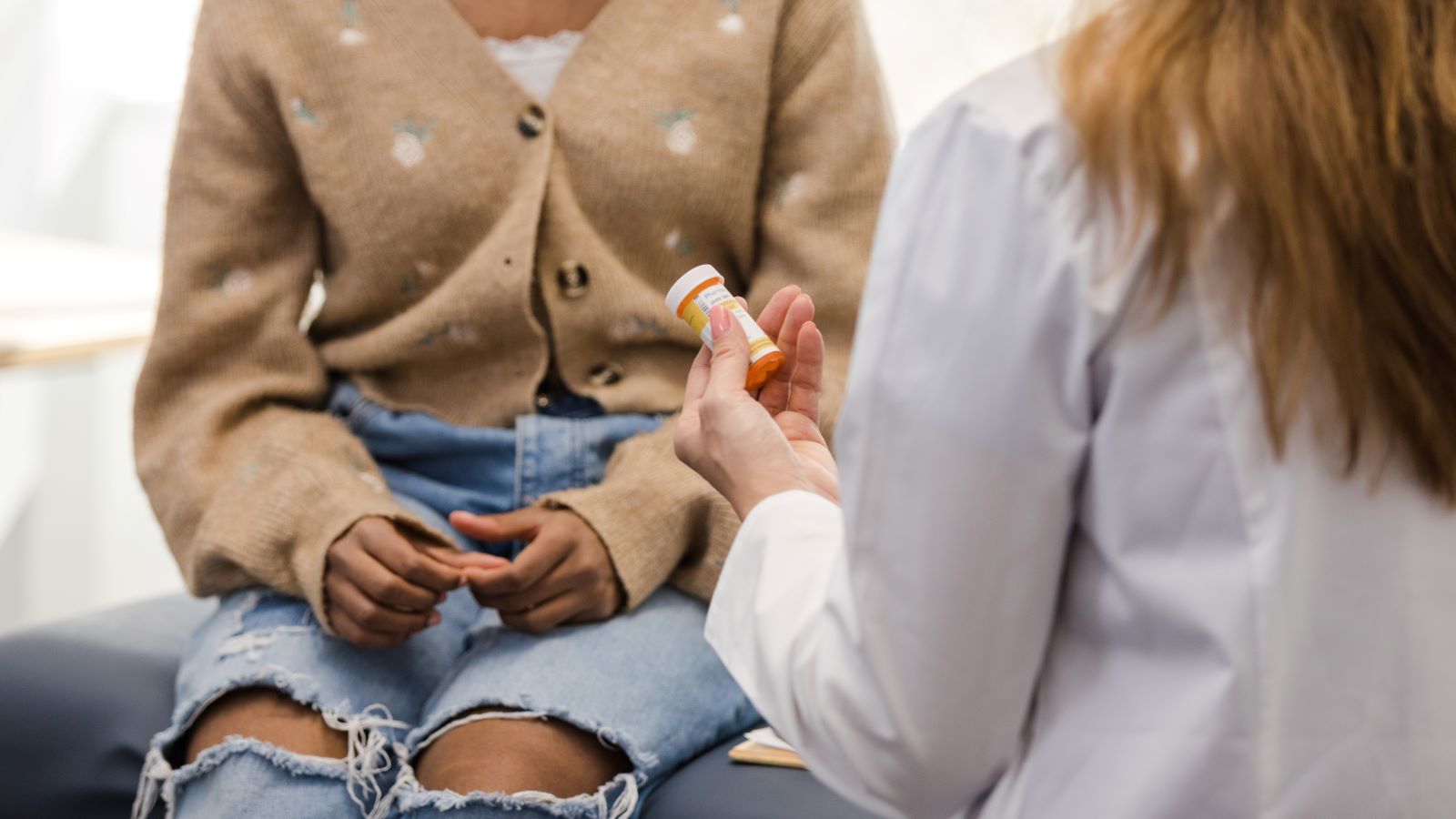<< Back
Ready to Try an Antidepressant? Here’s What to Expect

September 25, 2025
When you’ve been struggling with depression or anxiety, it’s hard to put yourself out there. It’s even harder when you don’t know what to expect.
Unfortunately, this is where many people get stuck: They’re ready to try an antidepressant, but they’re not sure how. How do you bring it up with your doctor? What happens next?
Psychiatrist Carla Schnitzlein, DO, residency clinic director of Hartford Hospital’s Institute of Living, has walked many patients through this process. Here’s what to expect.
1. Having the first conversation
Today, it’s often your primary care provider — not just a psychiatrist — who prescribes antidepressants. Many offices even include brief depression screenings during routine visits.
Whether they bring it up or you do, the key is to start the conversation. If you’re not sure what to say, try something simple like: “I’ve been struggling with feeling sad and I don’t know why.”
Your provider will take it from there — to learn how you’ve been feeling, and to rule out other conditions that can mimic depression.
“Your provider is going to ask a lot of questions about what depression looks like for you, because it looks a little different for everybody,” says Dr. Schnitzlein. “We know it can be uncomfortable to talk about mental health, but we’re here to support you. We want to understand what you need as an individual.”
> Related: 3 Ways Your Primary Care Provider Keeps You Healthy
2. Choosing an antidepressant
If you and your provider decide to try an antidepressant, you’ll talk through which type might be the best fit for you. There are several classes of antidepressants — SSRIs, SNRIs, MAOIs and newer “atypical” medications. All are effective, and if one doesn’t work, another often will.
“It’s not one size fits all. Even within the same class of medications, different ones affect people differently,” Dr. Schnitzlein explains.
SSRIs (short for “selective serotonin reuptake inhibitors”) are the first step for many people — but not everyone. Your provider will review the options with you, and consider which makes the most sense.
> Related: 4 Signs It’s Time to See an Expert for Anxiety
3. Waiting for results
Give it time.
“It can take a full six weeks to see the medication working at the right dose for you,” Dr. Schnitzlein says. “Even if you’re at the right dose, it takes time for your body to adjust.”
Look for specific improvements: For example, if tearfulness has been a problem, you may notice fewer crying spells. If you’ve been oversleeping, you might find you’re sleeping less and have more energy.
Sometimes, loved ones notice first. “I’ve had people say, ‘I didn’t think the medication was doing anything, but my wife said I’ve been more engaged,’” says Dr. Schnitzlein.
If you don’t see improvements after six weeks, your provider may suggest adjusting your dose, switching medications, or adding therapy.
4. Understanding side effects
It’s impossible to talk about medication without talking about side effects. That includes antidepressants.
“With some antidepressants, you might have a little nausea or diarrhea at first. You might get a headache. It might affect your sex drive,” says Dr. Schnitzlein. “But if something feels different in a bad way after starting the medication, talk to your doctor.”
Don’t let this scare you off. Many of the side effects of antidepressants ease within days or weeks, once your body adjusts. If not, your provider can help you find a better option.
> Related: 5 Mindfulness Techniques Worth Trying
5. The bigger picture
“These medications won’t change who you are. They won’t blunt your joy or make you a zombie. They just clear up the depression that was getting in the way of being your best self,” says Dr. Schnitzlein.
Above all, if you might be struggling with depression, ask for help. For some people, the first step toward feeling better is deciding to try an antidepressant with the guidance of their provider.
“It’s a hard thing to do at times, but it will help you get better,” says Dr. Schnitzlein. “Medication can’t work if we don’t ask for it.”